 Anthony Minghella for Breaking and Entering
Anthony Minghella for Breaking and EnteringBreaking and Entering continues to linger on my mind. Whereas other films have stayed with me because of their thematic or visual tanacity, Minghella's film has stayed with me because of it's simple workmanlike unfussiness. It's just an ordinary tale of a man and a midlife crisis, so I can't help but think Minghella (and lead actor Jude Law) had something to do with it's ability to amaze me.
 Alfonso Cuarón for Children of Men
Alfonso Cuarón for Children of MenI'm not sure what it is about British science fiction films, but they always seem to be so refreshingly off-centre and un-typical. Cuaron's vision for Children of Men is quite simple, but inventively and magically staged. He gives the film many of it's strengths. One of two futuristic art films on this list.
 Neil Marshall for The Descent
Neil Marshall for The DescentWhat Marshall did with his claustrophic horror tale The Descent was, quite simply, that he created one of the scariest movies of the last decade. Once the scares come, they come thick and fast and not in the same old ways. Marshall finds the scares, but doesn't rely on cheap tricks. The Descent deserves a place on here for scaring the bejesus outta me.
 Darren Aronosfsky for The Fountain
Darren Aronosfsky for The FountainI feel for Aronofsky. Having followed the production of The Fountain I almost feel like giving him a spot in the final five just for finally getting the film out there (but it'll never be that easy in my awards). He gets a best-ever performance out of his star and created one of the most moving collisions of audio and visual that I saw all year (the final assention or... whatever it was that was happening towards the end.)
 George Miller for Happy Feet
George Miller for Happy FeetA mammoth undertaking by Miller, a man with no former education in animated film. The film just feels collosal. It was hard to believe I was watching animation for some of the parts of the film. Sure, it's hyperactive and sort of bonkers, but, uh hello, some of the greatest movies ever made are stark raving mad. Why should this one be looked down on just because it's about penguins?
 Spike Lee for Inside Man
Spike Lee for Inside ManTaking the conventions of the heist sub-genre and tweaking them so as to appeal to Spike Lee's personal issues. He does it so well that many people didn't even realise he was doing it. It feels at once like a generic Hollywood thriller, but really Lee is just playing the audience like fiddle.
 Ray Lawrence for Jindabyne
Ray Lawrence for JindabyneOne of the finest directors around, yet only onto his third film, Lawrence tackles similar themes to his previous Lantana (including that film's sprawling, but more linked, multi-name cast). Here he plays with the audience, making them look at things and hear things we don't necessarily have to be, but should anyway. Hiding subtexts and unanswering questions is part of Lawrence's job. He does it splendidly.
 Sofia Coppola for Marie Antoinette
Sofia Coppola for Marie AntoinetteAfter only three films you can certainly tell you're watching "A Sofia Coppola film". But that's not a bad thing, contrary to popular belief. Sofia takes the story of dauphine Marie-Antoinette and puts her own unique spin. She gets points for not copping out and following the book. She throws the book in your face, laughs at you, dances a merry jig and then sets the book on fire... which may explain why so many people were angry at her. She lit them on fire, too. (???)
 Guillermo del Toro for Pan's Labyrinth
Guillermo del Toro for Pan's LabyrinthWhat del Toro puts on screen sure does pack a punch. Telling a tale that I could just tell he had wanted to tell for years (decades?), del Toro takes the audience by the scruff of the neck and leads them down the path (or, the labyrinth as the case may be) and dares them to play. What's inside is something to behold.
 Rolf de Heer and Peter Djigirr for Ten Canoes
Rolf de Heer and Peter Djigirr for Ten CanoesMuch like Aronofsky, I feel de Heer almost deserves a spot in the final five simply for managing to get the film off the ground and made and then out to cinemas. Filmed in participation with the Ramingining Community (of which Peter Djigirr is a representative) Ten Canoes is a truly one-of-a-kind never-seen-before type of film that rewards all the way.
 Paul Greengrass for United 93
Paul Greengrass for United 93Taking very sensitive subject matter and making it not only incredibly involving and intense, he also removes the jarring sentimentality that plagued Oliver Stone's World Trade Center and lets the material speak for itself. United 93's harrowing for it's entire running length, not just the moments of terror towards the final reels.
 Pedro Almodóvar for Volver
Pedro Almodóvar for VolverLike a captain steering a steady ship, Almodovar doesn't appear to be doing much other than letting the movie speak for itself, but it's the minor shifts in tone and the slight twists he employs that keeps Volver afloat. Never deferring off coarse, but also never feeling anything like you've seen it all before.

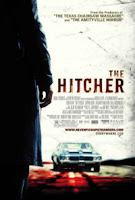
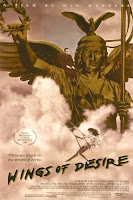
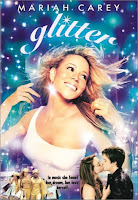
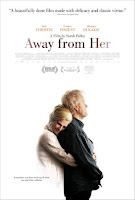
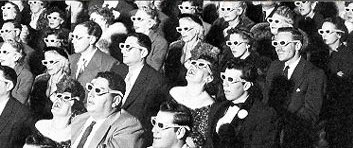
4 comments:
Four of my Director nominees are in there. And they are my Top 4. Yay!!!
I agree, to some extent, with your comments about Neil Marshall, Guillermo Del Toro, Paul Greengrass, and Alfonso Cuaron. Now, on to the bad stuff. I love Sofia Coppola; I really do, but Marie Antoinette was a real disappointment. I hate how people overlook the film’s flaws. She’s a talented director (and one of my favorites), but I refuse to lower my standards. To be fair, it seems that Sofia made this film for an American audience, but it just didn’t work for me. It was just too superficial, inaccurate, and narrow-minded. Wow, that sounds a lot like the Bush Administration. There were some wonderful scenes in the film (it’s clearly a Sofia Coppolar film), but the whole time, I felt like I was watching a bunch of (American) kids in a high school play.
Oh, and I also had issues with Pedro Almodovar’s Volver. To his credit, it was praised by many critics, and for a good reason; it’s a good film. I love Almodovar’s unconventional use of characters and his intelligent imagination. In Volver, I felt let down. The whole thing just felt absurd: (1 ) It appears that Spanish law enforcement officials are incompetent and/or nonexistent (three people were murdered and no one noticed). (2) People from small towns in Spain seem to be very dense, which is highly unlikely, but consider this: an elderly woman with a neurodegenerative disease is able to function alone and no one notices that someone is living with and assisting her. As you would say, WTF? To be fair to Almodovar, these kinds of absurd stories and circumstances have always been apart of many Spanish speaking cultures—in Telenovelas. So, many may applaud Volver, an absurd (stereotypic) Telenovela made for the silver screen with Almodovar’s magic touch. Sadly, I wasn’t impressed. Ok, I'll shut up now.
On Marie, it's supposed to be historically inaccurate and act like the most expensive high school play ever. And that's why it's awesome.
Who else was murdered in Volver except the obvious one? I remember only one.
AND IT IS A TELENOVELA!! Didn't you notice Iglesias' score? Obvious soap opera action.
Completely off-topic, but... I know how you disturbingly love Jamie Bell, so good news, I guess: He is in talks/going to replace Daniel Radcliffe in the London production of "Equus" when his run is over. You may celebrate now. I'm open minded. No qualms with your obsession.
Post a Comment